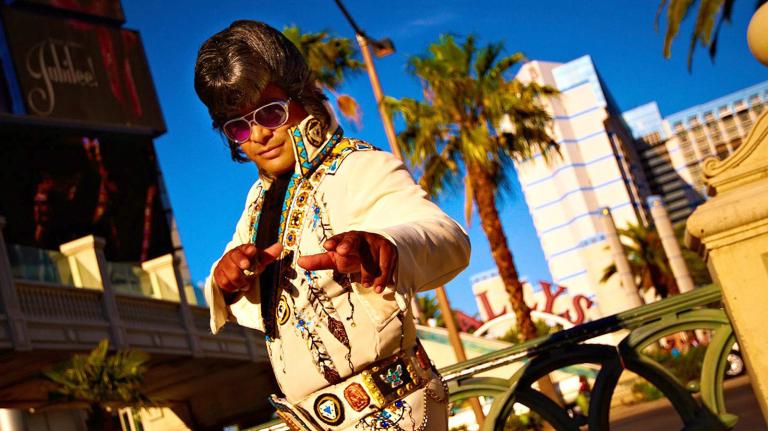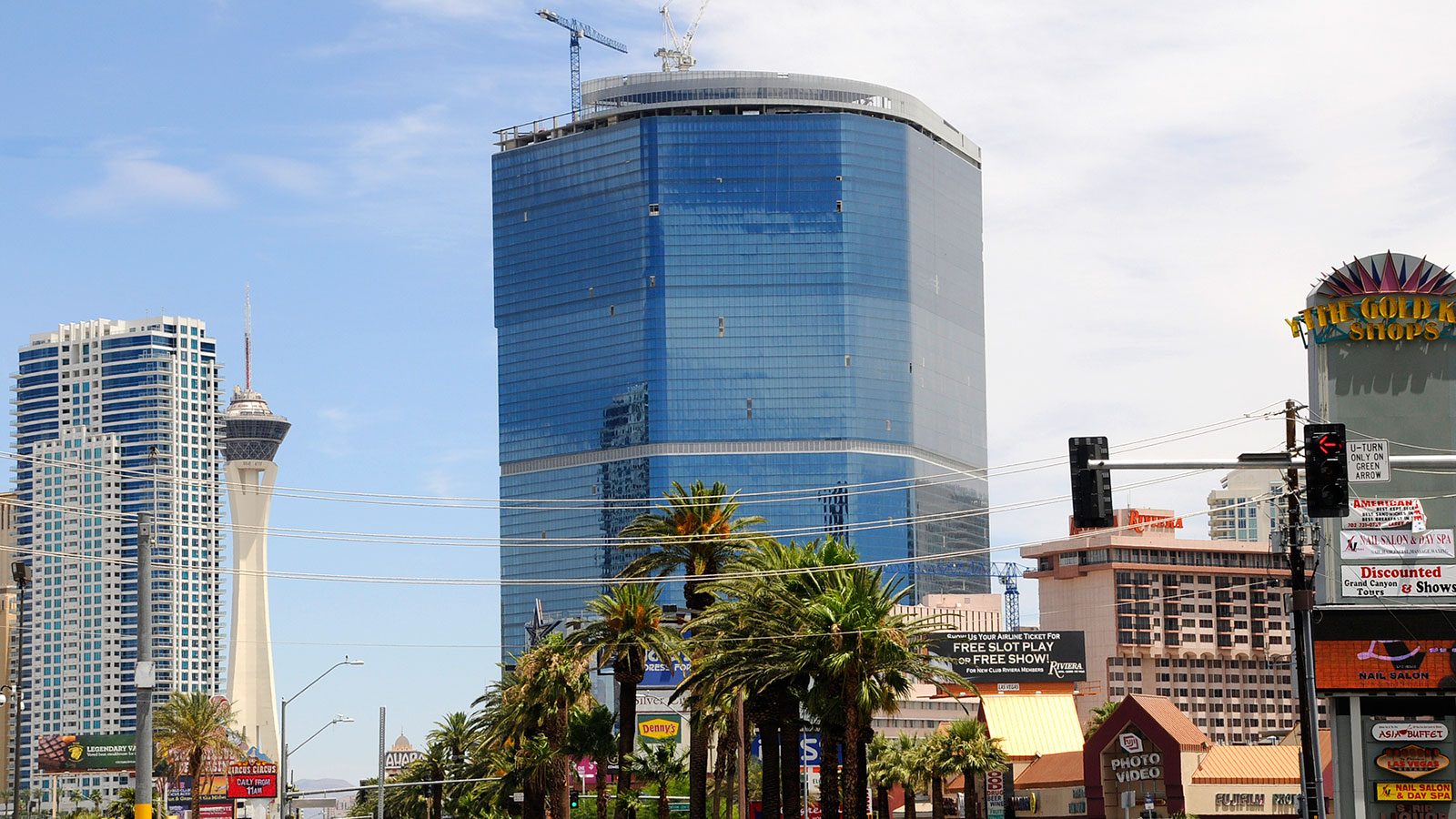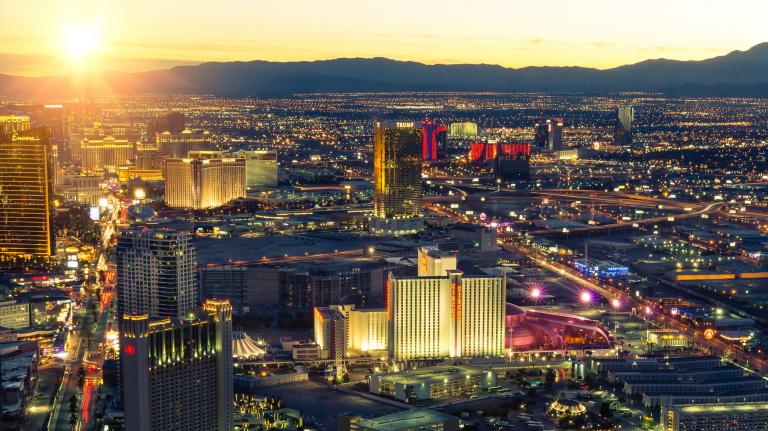Next time you fly into Las Vegas at night, take a close look at the casino-studded carnival in the center of the city. You’ll notice something odd. Amid all the glitter, there are a couple of black spots, like patches of dark matter in a star cluster. These are the dead zones, reminders of the 2007 economic collapse that brought this city to its knees.
The largest one is the Fontainebleau Las Vegas, a gleaming, blue-black skyscraper that stands at the north end of the Strip. The $3 billion project was to be the tallest building between Dallas and L.A., a 68-story, 3,889-room hotel-casino that would out-glitz all the rest. It was two-thirds complete when the economy crashed, and time seemed to grind to a halt.
In 2010, billionaire Carl Icahn bought the bankrupt project at a fire sale for $150 million. Since then, it has become an eyesore and a destination for urban explorers. Icahn has been mum about his plans for the development, but the recent disappearance of the construction crane on its roof gives credence to rumors that he plans to dismantle the structure and sell it for scrap, possibly to the Chinese, who seem to still be building skyscrapers.
What a fucking world we live in.
And that’s the thing about Las Vegas. I was in town last month searching for chinks in this city’s armor — signs that it is vulnerable to climate-driven catastrophe. What I found instead was that the obvious weak spots — the dearth of water, for example — are pretty much under control, at least in the near term. The real and present threats to this city are economic ones. If I were a betting man, I’d say Vegas is going to run out of money long before it runs out of water — and climate change could have a hand in that.
The 2007 financial crash was this city’s Katrina. For a couple of decades, Vegas had been one of the fastest growing metro areas in the country. Between 1990 and 2000, Clark County added, on average, more than 5,000 new residents each month. They came for the service jobs that paid middle-class wages, the poolside retirement living — and to cash in on the boom. During the housing bubble of the early aughts, “no place in the country heaved up more extreme real estate behavior than Las Vegas,” said a writer for Bloomberg BusinessWeek — behavior that landed a few of the people involved behind bars.
But when the economy crashed, Vegas veered into the ditch. The gaming, entertainment, and hospitality industry that makes up the largest chunk of the region’s economy sputtered and coughed. Before the crash, Vegas had been on pace to see a record 40 million visitors in 2007, but it fell just short. Visitation tumbled for the next two years, and revenues fell even faster, as tourists pinched pennies.
As went the Strip, so went everything else. Housing construction, the second largest economic driver, hit a brick wall. Half-finished “zombie subdivisions” haunted the urban fringes. Dozens of high-rise apartment developments planned for the old downtown never materialized. And the Fontainebleau wasn’t the only megaproject to stall mid-construction.
By the summer of 2011, nearly 14 percent of area residents were unemployed. A 2012 report from the group Southern Nevada Strong found that median home values had declined more than 60 percent since the bubble burst, and the majority of homeowners were underwater, meaning that they owed the bank more than their homes were worth.
Such is life when your economy rests so heavily on a single industry. “Our biggest vulnerability,” says Steven Brown, director of the Center for Business and Economic Research at UNLV’s Lee Business School, “is lack of economic diversity.”
As the national economy has slowly revived, the tourists have returned to the strip. Last year, Vegas set a record, once again falling just shy of 40 million visitors. But they’re not blowing the kind of cash they once did. Local business people talk about “Mr. and Mrs. Coleman” — the couple that shows up at the hotel with a cooler full of food for the weekend.
And while construction has resumed on some of the megaprojects on the strip, and the real estate market seems to have stopped its death spiral, Las Vegas is still far from recovered. A study last spring found more than 40,000 vacant or abandoned homes in the Las Vegas Valley. That number makes even Baltimore look good.
Now the city that bills itself as the Entertainment Capital of the World faces more competition — both domestically, from other states and Indian tribes that have opened gambling operations, and internationally, from massive casino resorts in Macau and other Asian countries. Vegas is still the industry’s nerve center, but without a robust local economy, the city’s famous middle class is out of luck.
So how does climate change play into all of this? Well, it will make life in Vegas even hotter and drier than it is now, as I’ve written. But the primary impacts will likely be economic. Vegas is, after all, a city that imports almost everything necessary to its existence — not just most of its water, but nearly all of its food, and its primary economic lifeblood: tourists.
What happens when rising oil prices prevent the airlines from offering cheap tickets for weekend revelers, or when the drive from L.A. (a city that is going to have plenty of climate-related problems of its own) becomes so expensive that people find it’s no longer worth the trip? “If the Indian casinos in California really upped their game,” says Brown, the economist, “I could see people saying, ‘Why spend $100 for a tank of gas to go to Vegas when I could go to the [local] casino I see advertised at the Padres game?’”
Meanwhile, natural disasters are taking a rising financial toll. Unless you’re an exec at Home Depot or an insurance company, the future isn’t looking terribly bright. It’s not hard to imagine a scenario where people just stop coming here, where investors no longer find Vegas an attractive place to build. Just look at the Fontainebleau.
But Las Vegas has a way of reinventing itself, and there’s reason to believe that it’s going to do it again.




